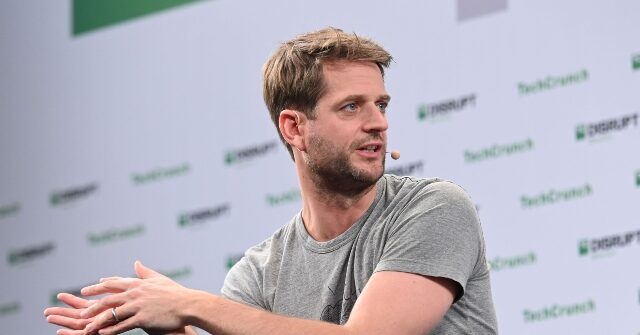Sebastian Siemiatkowski, the CEO of fintech company Klarna, has shared his apprehensions about the swift advancements in artificial intelligence (AI) technology, which he believes could soon be capable of performing his entire job. Siemiatkowski writes that he feels “gloomy” over the fact AI has made him replaceable.
Fortune reports that in a recent statement, Sebastian Siemiatkowski, the CEO of the Swedish fintech giant Klarna, expressed his growing concerns about the rapid development of AI and its potential to replace his role within the company. Siemiatkowski’s comments underscore the increasing apprehension among business leaders as AI continues to make significant strides in various industries, threatening to disrupt traditional job roles and reshape the future of work.
Siemiatkowski adds almost as an afterthought, “I am not necessarily super excited about this. On the contrary my work to me is a super important part of who I am, and realizing it might become unnecessary is gloomy.”
Klarna, a leading provider of buy now, pay later (BNPL) services, has been at the forefront of the fintech revolution, offering innovative payment solutions to millions of customers worldwide. However, Siemiatkowski’s remarks highlight the challenges that even the most successful tech companies may face as AI technology continues to advance at an unprecedented pace.
Breitbart News previously reported that Klarna has stopped hiring humans, favoring AI to perform the same tasks:
Despite the company’s website advertising open positions, Siemiatkowski revealed that Klarna had stopped hiring about a year ago. The company’s workforce has since shrunk from 4,500 to 3,500 employees, primarily due to natural attrition. Siemiatkowski explained that, on average, employees stay with the company for about five years, resulting in a 20 percent turnover each year. By not actively filling these vacancies, Klarna has effectively reduced its workforce size.
Interestingly, Siemiatkowski mentioned that Klarna has communicated to its employees that while the total salary cost of the company will decrease, a portion of the resulting financial gain will be reflected in their paychecks. This suggests that the company may be looking to incentivize its remaining workforce as it navigates the challenges posed by AI and the evolving fintech landscape.
While the adoption of AI has the potential to streamline operations, increase efficiency, and drive innovation within companies, it also raises important questions about the future of employment and the role of human leadership in the age of intelligent machines. As AI systems become more sophisticated and autonomous, there is a growing concern that they could eventually replace not only manual and repetitive tasks but also higher-level cognitive functions, such as strategic decision-making and problem-solving.
Siemiatkowski’s apprehensions are not unfounded, as several studies have predicted that AI could automate a significant portion of jobs across various sectors in the coming years. A report by McKinsey Global Institute estimates that by 2030, up to 800 million jobs worldwide could be displaced by automation, including AI and robotics. While the report also suggests that new jobs will be created as a result of these technological advancements, the transition period could be challenging for both employees and employers alike.
Read more at Fortune here.
Lucas Nolan is a reporter for Breitbart News covering issues of free speech and online censorship.
Read the full article here
